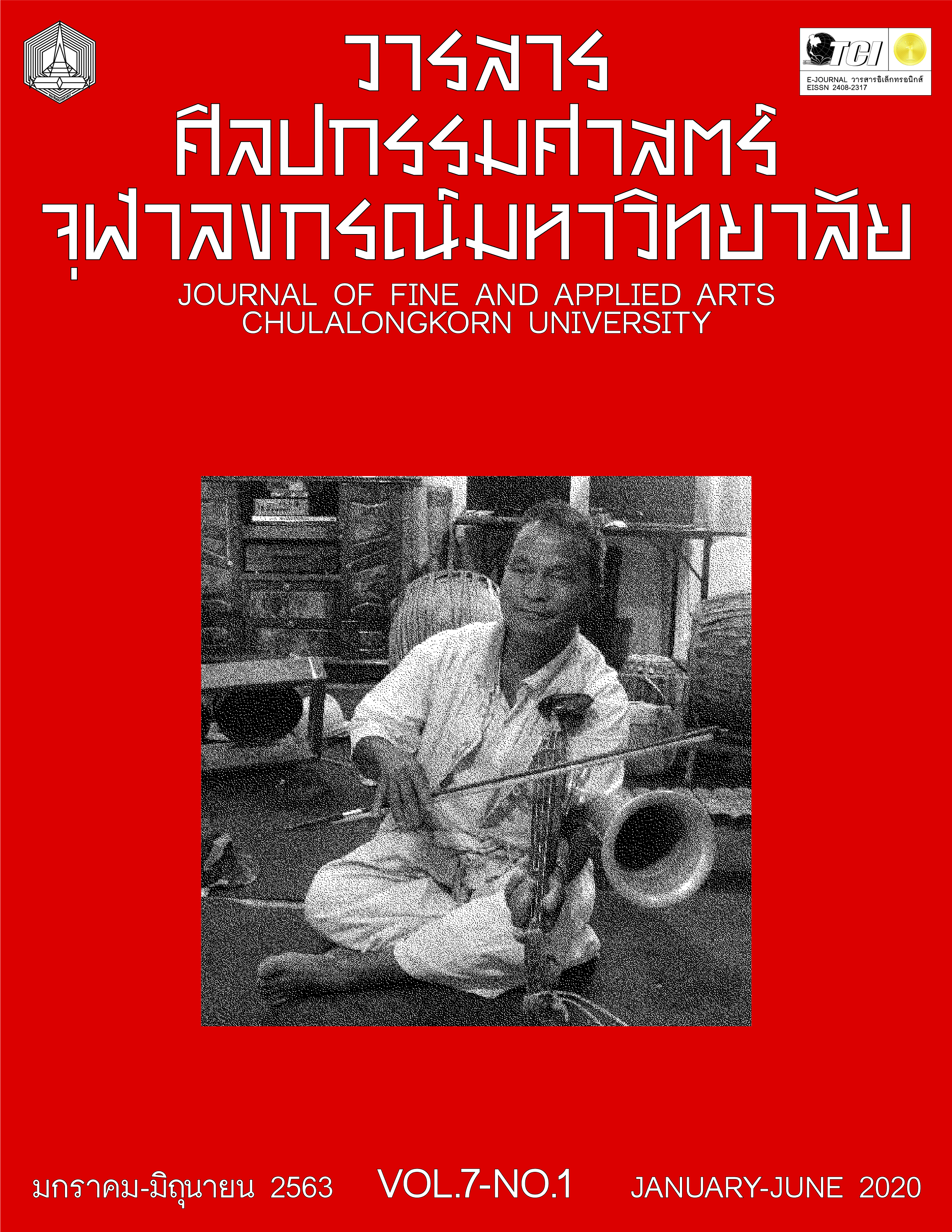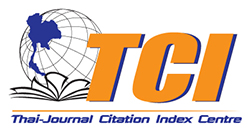เจตจำนงเสรีของพระลอ: แนวทางการกำกับการแสดงละครเวทีเรื่อง “ลอดิลกล่มฟ้า”
Keywords:
การกำกับการแสดง, พระลอ, ลอดิลกล่มฟ้า, นาฎกรรมร่วมสมัย, Directing, LOR: Love, Obsession, Revenge, Thai Contemporary TheatreAbstract
บทคัดย่อ
งานวิจัยเรื่อง “เจตจำนงเสรีของพระลอ: แนวทางการกำกับการแสดงละครเวทีเรื่อง “ลอดิลกล่มฟ้า” มีวัตถุประสงค์เพื่อค้นหาแนวทางการกำกับการแสดงละครไทยด้วยการนำเสนอแก่นความคิดของเรื่องที่มีความเป็นสากลเพื่อผู้ชมต่างชาติและทดลองการตีความวรรณคดีเรื่องลิลิตพระลอใหม่โดยใช้ทฤษฎีประพันธศิลป์ของอริสโตเติลแนวคิดปรัชญาตะวันตกเรื่องเจตจำนงเสรีและลัทธิเหตุวิสัย เพื่อตอบคำถามสำคัญของละครเรื่องชะตากรรมและเจตจำนงเสรี โดยมีวิธีการดำเนินการวิจัยด้วยวิธีศึกษาวรรณกรรม งานศิลปะที่เกี่ยวข้อง วิธีปฏิบัติโดยการสร้างสรรค์ละครเวที วิธีสังเกตและสัมภาษณ์ผู้ชม ผลการวิจัยพบว่า ในการสร้างลักษณะนิสัยตัวละครเอกคือพระลอ ต้องเสริมความยิ่งใหญ่ในลักษณะนิสัยที่มากกว่ารูปลักษณ์ที่งดงามซึ่งถือเป็นโชคที่ติดตัวมา พระลอในละครเรื่องนี้จึงมีความสามารถในการรบ มีความเป็นผู้นำ ส่วนข้อบกพร่องผิดพลาดในลักษณะนิสัยของพระลอคือความสงสัยในกรรม ชะตากรรม และเจตจำนงเสรี หรือความอ่อนเขลาทางธรรม จึงพ่ายแพ้ต่อแรงผลักแห่งกิเลส ตัดสินใจทำตามเจตจำนงเสรี และนำไปสู่การเรียนรู้ว่ากรรมคือการกระทำ มนุษย์เราอ่อนแอที่โทษกรรม แต่แท้จริงแล้วมนุษย์อ่อนแอต่อกิเลสที่ตนตัดสินใจเลือกกระทำเอง และการกระทำนั้นจะเป็นเจตจำนงเสรีได้ก็ต่อเมื่อผู้กระทำยอมรับว่าตนได้เลือกแล้วที่จะกระทำและพร้อมยอมรับผลสืบเนื่องที่ตามมา จากการเปิดแสดงให้ผู้ชมชาวแคนาดา ณ นครแวนคูเวอร์ ประเทศแคนาดา พบว่าผู้ชมสามารถติดตามเรื่องราว เกิดอารมณ์ร่วม เกิดการเปรียบเทียบตนเองกับตัวละคร เกิดความสงสารและความกลัว จนนำไปสู่ความสว่างทางปัญญาและการชำระล้างจิตวิญญาณให้บริสุทธิ์ตามกระบวนการของโศกนาฏกรรมได้เป็นอย่างดี
Abstract
“Phra Lor’s Free Will: Directing Approach for “LOR: Love, Obsession, Revenge” explores the new approach for directing Thai play with universal theme and the way of interpreting “Lilit Phra Lor” by using ideas from Aristotle’s The Poetics, Western philosophical concepts of Free Will and Determinism to solve the dramatic question of “Fate and Free Will” in order to discover the Universality in theme to communicate to Non-Thai audiences. The findings reveal that, the characterization of Phra Lor, the protagonist, needs the enhance of Tragic Greatness, because nobility in appearance is “Luck”, not “Manner”. Therefore, Phra Lor in this version is a great warrior and leader. Phra Lor’s Tragic Flaw is his doubt in Karma, Fate and Free will, which is considered Ignorance. This leads to the protagonist’s recognization that Karma is Action. One blames it on Karma but in fact, one is weak and susceptible to Ananke, the force, constraint, necessity of Passion. The action will be considered Free Will only one admits that he, himself, had an intention or made a decision to do it, and ready for its consequences. “LOR: Love, Passion, Revenge” was performed in Vancouver, Canada for Canadian audiences. The show proved well that it had a capacity to communicate, lead the audience into the state of Involvement, Identification, Pity and Fear, Enlightenment, and Catharsis, as Tragedy should be.
Downloads
Published
Issue
Section
License
ลิขสิทธิ์ของบทความเป็นของเจ้าของบทความ บทความที่ได้รับการตีพิมพ์ถือเป็นทัศนะของผู้เขียน
กองบรรณาธิการไม่จำเป็นต้องเห็นด้วยและไม่รับผิดชอบต่อบทความนั้น






